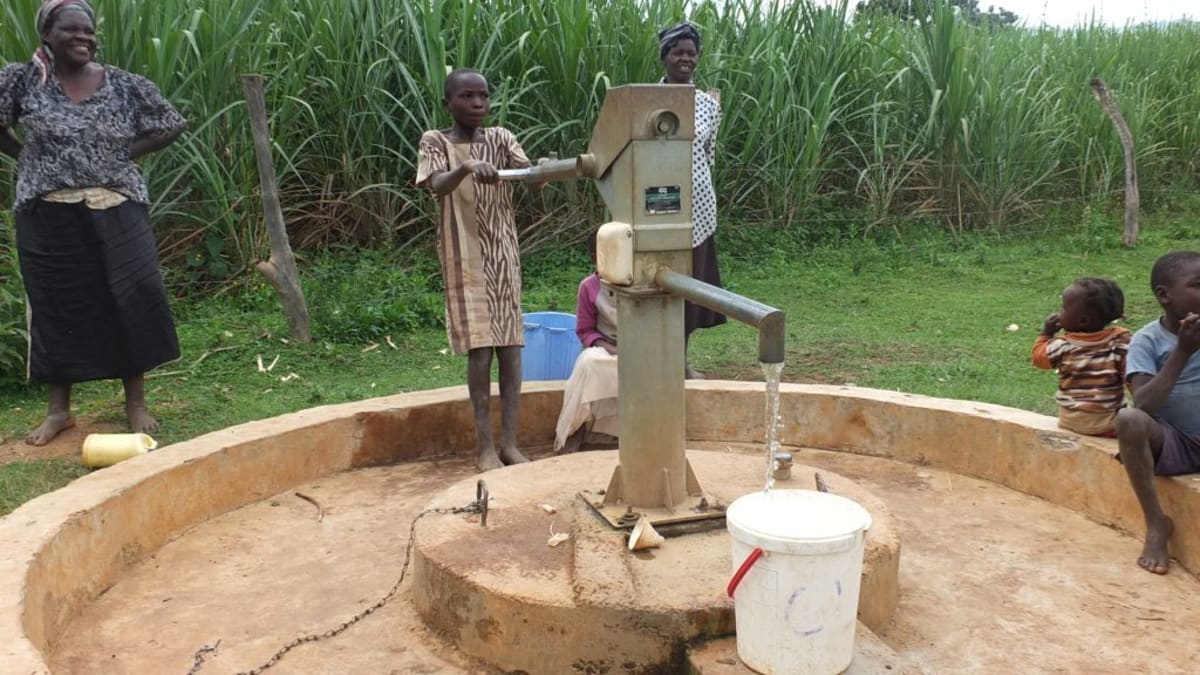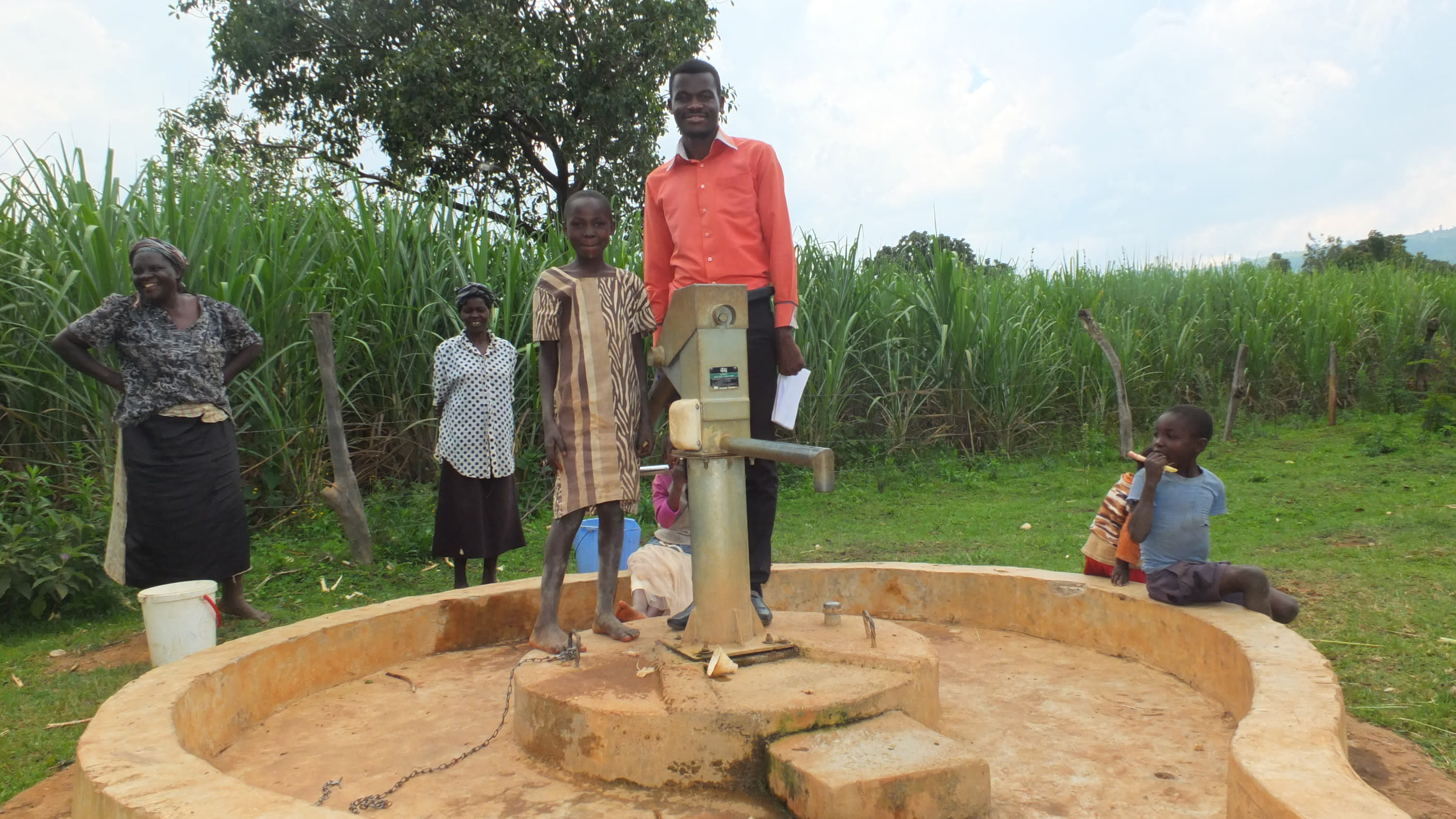A Year Later: Kimanget Community

A year ago, generous donors helped rehabilitate a well with the Kimanget Community in Western Kenya. Because of these gifts and contributions from our monthly donors, partners can visit project sites throughout the year, strengthening relationships with communities and evaluating the actual water project. These consistent visits allow us to learn vital lessons and hear amazing stories – we’re excited to share this one from our partner, Paul Weringa, with you.
Kimanget was like dozens of other Kenyan communities, facing waterborne diseases on a daily basis. They were drawing dirty water from an open well, and the community members did not know of treating water before drinking.
Rehabilitating the well by building a well pad and installing an AfriDev pump, and training the community members on good hygiene and sanitation has really improved health here.
Without having to face waterborne diseases, much has been achieved in terms of food production on their farms.
We met well caretaker Beatrice Naliaka to talk about how life has changed for her and her community over the past year. "As a healthy people in a healthy community, we no longer spend most of our time in the hospitals. Instead, we spend time on our small farms planting and harvesting our crops. We can put food on the table for our families.
When we used to pull a bucket from the well to get water, we used to experience chest and back pains. This problem has been solved by the installation of the pump, and now fetching water has become easier."
We also met 9-year-old Eglay Meshack, a young girl who came to fetch water for her mother. She agreed with Mrs. Naliaka, saying "Since the project was brought to our community, it has become easier to help my parents fetch water for construction of our house, bathing, washing utensils, washing clothes and cooking."
The only challenge here is that many people are still not willing to contribute fees for their well, which would be used for maintenance. They have the idea that water should be free, but the well is really providing a service that needs to be maintained to ensure sustainability. Our team continues to engage with them on this through our quarterly monitoring visits and other trainings.
The Water Project and our partners are committed to consistent monitoring of each water source. Our monitoring and evaluation program, made possible by monthly donors, allows us to visit communities up to 4 times a year. Read more about our program and how you can help.
See The Water Project in Beatrice Naliaka's Community »
